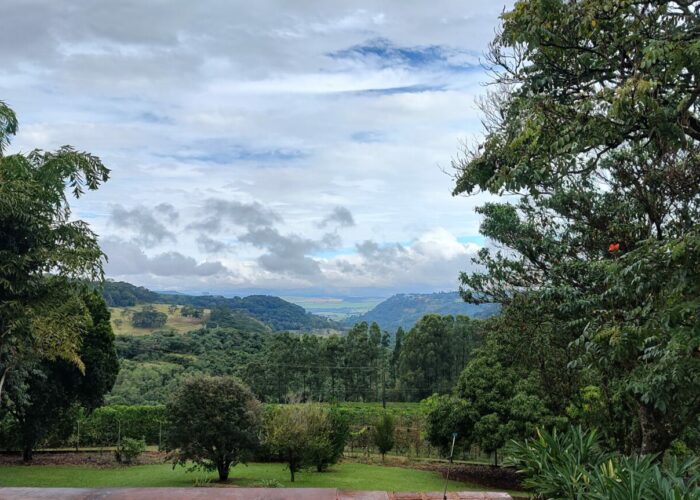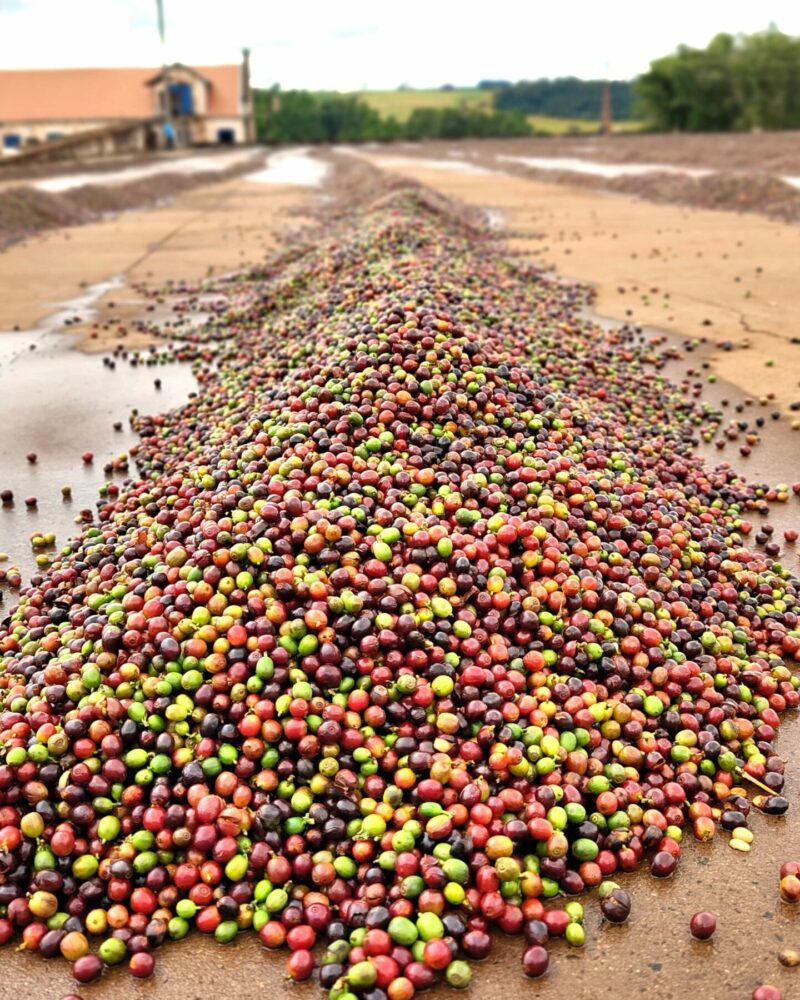In 1936, Plinio Adams acquired Fazenda Morada da Prata and ran it until 1965. In 1968, Adélia (Plínio’s widow) handed over farm management to her daughter Maria Helena.
In the 1970s, Morada da Prata established itself by cultivating coffee, soybeans, and corn.
More recently, in 2010, Arnaldo Adams Ribeiro Pinto, Maria Helena’s son, took over the farm, bringing a new look and focusing on producing specialty coffees, which won awards in quality competitions.
The coffee farm occupies about 150 hectares, out of a total of 456 hectares, are beautifully preserved native forests where large animals roam freely, and typical Atlantic Forest species are protected from extinction. In rich, clayey soil, predominantly red and red/yellow latosols, 160 hectares of coffee and 45 hectares of sugar cane, as well as pastures and eucalyptus trees, are grown.
Perfect soil combined with best agricultural practices, such as regenerative agriculture and sustainability, results in excellent coffee quality.
Regenerative / Conservative Agriculture
Since 2016, they have improved soil management by constantly reducing the use of chemicals.
They produce organic compost and plant trees and other plants that attract coffee pests’ natural enemies.


